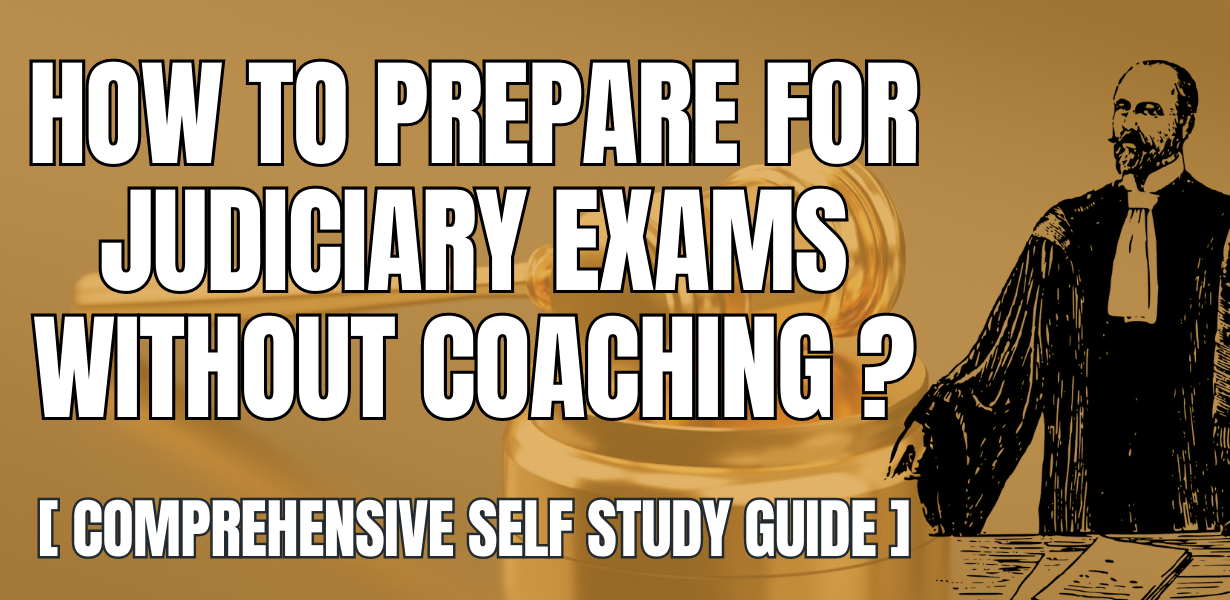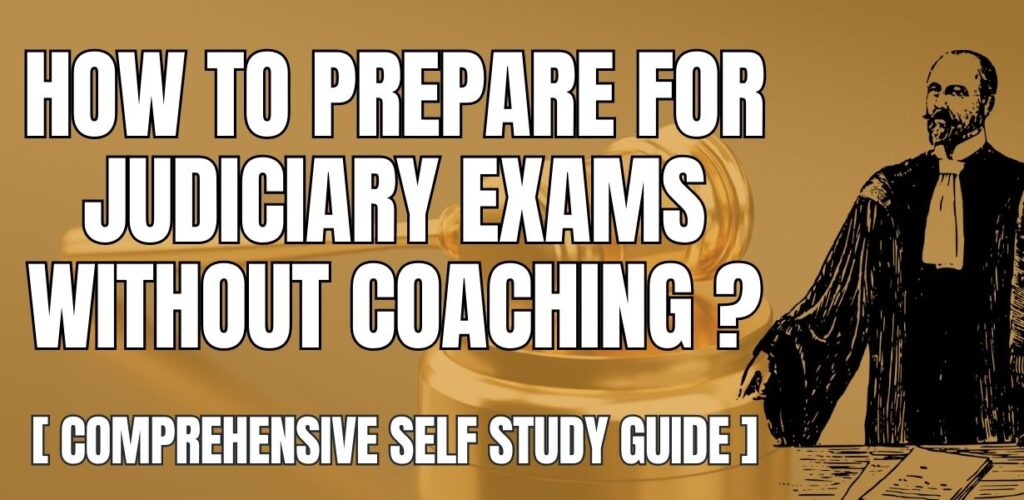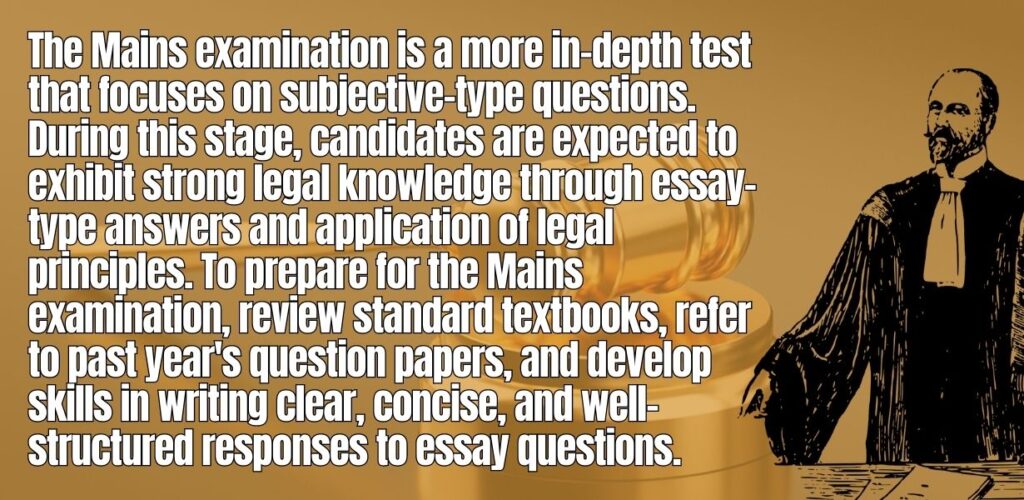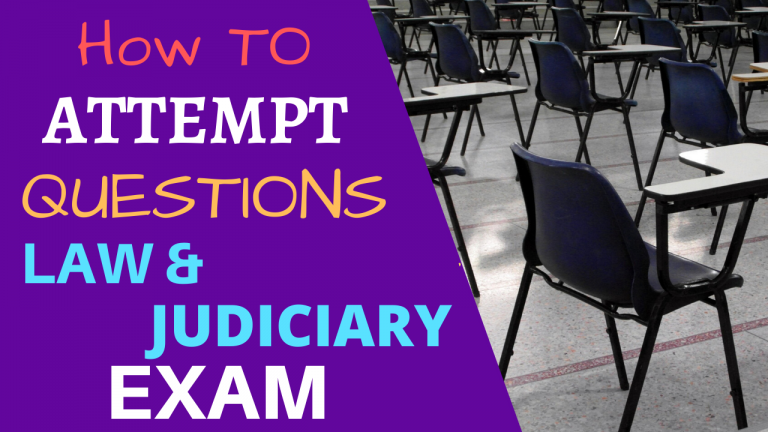How to Prepare for Judiciary Exams Without Coaching: A Comprehensive Self-Study Guide

Preparing for judiciary exams without coaching can be a tedious task, but it is certainly achievable with the right strategy and determination. The judicial services exam is highly prestigious, attracting many law students and professionals seeking a career in this field. While many candidates may opt for coaching centers to aid their preparation, a significant number of aspirants have succeeded in cracking the exam without formal coaching.
To embark on this journey, candidates must familiarize themselves with the state’s specific syllabus and weightage, as each state has its variations. In addition, fluency in the local language and understanding of the cultural nuances are imperative, given their roles in the examination.

Well-formulated strategy can significantly contribute to a candidate’s success without the need for external coaching.
One of the key components of self-preparation includes reading general knowledge, recent judgments, and newspapers to stay abreast of current affairs. Moreover, practice in English and Hindi language papers, along with focusing on significant acts, can help reduce the workload and last-moment anxiety.
Understanding the Exam Pattern
When preparing for judiciary exams without coaching, it is crucial for candidates to have a firm grasp on the exam pattern. Familiarizing oneself with the structure of the exams allows for more effective study habits and increases the chances of success.
Do consider, that the judiciary exams consist of three stages: the preliminary round, the mains examination, and the interview stage.
The preliminary round is typically comprised of objective-type questions, which serve as a screening test to filter candidates for the Mains Examination. To succeed in this stage, focus on understanding the subjects and concepts that are typically covered in the preliminary exam, and practice answering objective-type questions.
The Mains examination is a more in-depth test that focuses on subjective-type questions. During this stage, candidates are expected to exhibit strong legal knowledge through essay-type answers and application of legal principles. To prepare for the Mains examination, review standard textbooks, refer to past year’s question papers, and develop skills in writing clear, concise, and well-structured responses to essay questions.

Lastly, the interview round is designed to evaluate a candidate’s personality, communication skills, and general aptitude for joining the judiciary. Preparing for this stage involves staying updated on current affairs, expanding one’s knowledge of legal topics, and honing interpersonal and communication skills. Participating in mock interviews and seeking feedback can also greatly improve one’s performance during this selection process stage.
In summary, when preparing for judiciary exams without coaching, understanding the exam pattern is essential. To succeed in each stage, candidates must focus on their respective requirements: mastering objective-type questions for the preliminary round, enhancing legal knowledge and writing skills for the Mains examination, and improving communication skills and general awareness for the interview round.
Know the Syllabus Well
A crucial aspect of preparing for judiciary exams without coaching is to thoroughly understand the syllabus. As every state has its unique syllabus and weightage, it’s essential to go through the detailed syllabus of the Judiciary Exam for the particular state you want to apply to. This will give you an in-depth understanding of the subject matter and help you prioritize your study plan.
Syllabus for each State typically covers various legal subjects, including the Constitution, Criminal laws, Procedural laws, and Family laws, among others. Therefore, it is important to identify core subjects in the syllabus and focus on significant acts and landmark judgments relevant to these subjects according to specific State Exam.
Stay updated with recent judgments, as they are likely to be included in the exam. Newspapers and legal journals can be a valuable source for this purpose.
Divide the syllabus into smaller sections and create a study plan that allocates appropriate time for each section. Consistently adhere to this plan to ensure comprehensive coverage of the syllabus. Remember to set aside time for a periodic revision of the topics and regular practice of sample questions and mock tests. This will help sharpen your skills and enhance your understanding of the topics.
Revision Strategy for Judiciary Exams: Revise Content for Judiciary Exam in India: Tips and Strategies
Moreover, do not neglect the study of General knowledge, cultural aspects, and compulsory language papers required for the specific judiciary exam. Dedicate 2-3 hours daily to read General knowledge, recent judgments, and newspapers. Practicing more with English and Hindi language papers will also be helpful in your preparation.
Preparing for judiciary exams without coaching is achievable with a thorough understanding of the syllabus, disciplined study habits, and diligent practice. Be persistent and patient, and you will surely improve your chances of success in the exams.
Essential Study Material
Bare Acts
Bare Acts are the foundation of any legal study. They are the primary source of law and should be at the core of your preparation for Judiciary Exams. As an aspiring judicial officer, make sure to acquire updated versions of Bare Acts to stay up-to-date with any recent amendments. Some examples of essential Bare Acts include:
- Indian Penal Code (IPC)
- Code of Criminal Procedure (CrPC)
- Indian Evidence Act
- Code of Civil Procedure (CPC)
Course Books to prepare for Judiciary Exams at Home
Course books provide comprehensive knowledge and insights into specific areas of law. When preparing for the Judiciary Exam without coaching, it’s crucial to refer to books recommended by experts and successful candidates. For example, Batuklal’s book on the law of evidence is an excellent resource for judiciary exam preparation, written in clear and concise language. Some other popular books include:
- Indian Polity by M Laxmikanth
- Constitutional Law by DD Basu
Buy at Amazon:
Introduction to the Constitution of India: https://amzn.to/3OArxIb
Indian Polity ( English ): https://amzn.to/45wzPHi
Previous Year Question Papers
Previous year question papers are valuable study material for judiciary exams. They help in understanding the exam pattern, the types of questions asked, and the weightage given to each subject. Analyzing and solving these papers will help identify strengths and weaknesses, enabling improvement and efficient time management. Create a question bank by compiling past papers from various states to have a comprehensive resource.
Multiple Choice Questions
Multiple Choice Questions (MCQs) play a significant role in the prelims stage of Judiciary Exams. Practice answering MCQs consistently to enhance speed and accuracy. Allocate time for MCQ practice regularly and keep track of progress. Referring to question banks can offer ample practice material.
Charts & Diagrams
Charts and diagrams are useful study tools for visualizing complex concepts and retaining information more efficiently. Employ flowcharts, mind maps, and tables to simplify complicated topics. This will help in better comprehension and recall during the examination.
Answer Writing Skills
Developing answer writing skills is vital for the mains stage of Judiciary Exams. Create a habit of writing essays and answers to questions covering various legal topics. Enhance clarity, coherence, and conciseness in writing while adhering to time constraints. Regularly examine and review your answers using the available literature, including case laws and Bare Acts.
To sum up, while preparing for Judiciary Exams without coaching, prioritize acquiring essential study material such as Bare Acts, course books, previous year papers, and practice resources. Utilize charts, diagrams, and answer writing techniques for enhanced learning and information retention.
How to Prepare for Judiciary Exams Without Coaching?Planning Your Preparation
Planning is the Key
The first step to preparing for judiciary exams without coaching is to create a strategic plan that works best for the individual.
This involves thoroughly researching the exam syllabus, understanding the weightage given to various subjects, and organizing study materials in a systematic manner.
Scientific Fact
A scientific approach to learning emphasizes the importance of understanding concepts rather than rote memorization. Utilizing active recall techniques can greatly enhance one’s understanding of complex legal issues and help retain information longer.
Which subjects to start & Way to prepare
Developing an order in which to study the various subjects can prove helpful, and focusing initially on the foundational subjects like constitutional law and civil law sets a strong base for the aspirant. As they progress, they can start tackling other subjects simultaneously to improve both their knowledge and time management skills.
Analyze and Assess
Self-assessment is crucial in understanding one’s progress and identifying weak areas that need improvement. Aspirants should regularly test themselves through mock tests or solved question papers to track their progress.
Create a Daily Study Plan
Allocating a specific number of hours each day to dedicated studying is essential for consistent progress. A daily study plan should include reading, notes-making, practicing mock tests, and revising key concepts.
State-Specific Preparation
Every State has its distinct judiciary exam syllabus, so keeping in mind the state-specific requirements while preparing becomes vital. Aspirants should research the syllabus and pattern for the state they are targeting and adjust their study plan accordingly.
Questions that have to be answered when you choose for more than one State.
Which State to PLAN according to Language?
Number of states to plan Local Acts?
How to Plan?
Focused Study.
Language Proficiency
Many judiciary exams test candidates on their knowledge of the local language. Therefore, aspirants should make efforts to enhance their proficiency in the specific language required for the state they wish to apply.
How to study Case Laws
Familiarizing oneself with landmark case laws and understanding the legal principles behind them is essential for successful judiciary exam preparation. Aspirants should make notes, summarize judgments, and regularly revisit them for revision.
Judgment Writing
Honing one’s judgment writing skills is crucial for judiciary exams. Regular practice of drafting judgments can significantly improve this skill, enabling candidates to produce well-structured and cohesive judgments under exam pressure.
Developing Skills for Judicial Services
Developing critical thinking, analytical reasoning, and problem-solving skills are vital for aspiring judges. Constantly engaging in legal debates or discussions and staying updated with legal news can greatly enhance these skills.
General Knowledge and Current Affairs
A thorough understanding of General knowledge and Current Affairs is indispensable for judiciary exam aspirants. Reading newspapers, magazines, and following online legal forums can help ensure that candidates are well-informed about all relevant events and developments.
Focus on Your Weak Areas
Aspirants must identify their weak areas and allocate more time to improve upon them. This process of self-assessment and improvement is crucial for consistent progress during the preparation journey.
Let’s Nail it (Practice Through Mock Tests)
Objective Type Mock Tests
Practicing through objective type mock tests is a very important part of preparing for judiciary exams without coaching. Attempting various mock tests will help to familiarize yourself with the exam pattern and understand the type and level of questions asked in the exam. It will also enable you to identify your strengths and weaknesses and accordingly, focus on areas that require improvement. Mock tests help to:
- Enhance time management skills
- Develop problem-solving abilities
- Improve accuracy and speed
- Find your weak areas.
Make sure to analyze your performance in each mock test and compare it with the marking scheme to track your progress.
Subjective Answer Writing
The subjective answer writing practice is essential for judiciary exams as it helps to:
- Develop better analytical skills
- Master the art of articulating your thoughts
- Structure your answers systematically
- Complete your Paper on Time on the Actual Exam day.
While practicing subjective answers, pay attention to the word limit, legal provisions, and recent case laws. It is important to focus on the presentation of answers, such as headings, sub-headings, and numbering.
Essay Writing
Essay writing is another crucial aspect of the judiciary exam preparation. It holds significant weightage in the exam and requires a systematic approach. To excel in essay writing, follow these steps:
- Read extensively: Read newspapers, law journals, and legal essays to stay updated on current legal issues and broaden your knowledge base.
- Analyze previous essays: Review past year’s essays and their marking scheme to understand the expectations of the examiners.
- Outline your essay: Organize your thoughts and create a framework for your essay to make it coherent and structured.
- Practice Well: Write multiple essays on various legal topics to develop your writing skills and adapt to different subject areas.
- Review and select topics: Identify the topics that have been frequently asked in previous years and concentrate on them.
By incorporating the practice of objective type mock tests, subjective answer writing, and essay writing into your preparation strategy, you can significantly enhance your scorecard.
Self-Study
Preparing for judiciary exams without coaching might seem bit difficult task; however, with determination and a well-structured self-study plan, one can achieve success. Self-study enables a candidate to learn at their own pace and focus on specific areas where they need improvement.
First, it’s essential for the you to decide which state you want to apply to, as every state has its own syllabus and weightage. Once you have chosen the state, you should thoroughly study the Judiciary Exam syllabus and understand the exam pattern. This will guide in creating an effective study plan. Candidates can refer to books, reports, case laws, and other study materials relevant to the exam.
A well-structured daily routine, dedicating a minimum of 10 to 12 hours for studying, is necessary for self-study. Allocate 2 to 3 hours for General Knowledge, recent Judgments, and newspapers, and practice English and Hindi language papers to improve language skills. Candidates should also focus more on significant acts to reduce workload and last-minute anxiety.
Notes-making is crucial in the self-study process. Aspirants should ensure that the notes are crisp, wholesome, and well-organized. They can also use flowcharts, diagrams, or other visual aids in their notes. Preparing notes facilitates easy revision.
Another essential aspect of self-study preparation is answer writing practice. Candidates should start writing answers right from the beginning and refine their writing skills, which will help them present their answers effectively during the exam.
Lastly, self-assessment plays a vital role in self-study preparation. Candidates should regularly take mock tests and analyze their performance to identify weak areas and improve upon them. By tracking their performance in mock tests, they can make necessary adjustments in their study plan and preparation strategy.
To sum up, preparing for judiciary exams without coaching is possible, provided the candidate consistently follows their well-structured self-study plan, regularly practice answer writing, and continuously assess their performance through mock tests.
Utilize Online Resources
One of the most effective ways to prepare for judiciary exams without coaching is to make good use of the available online resources. There is a wealth of information out there that can help you understand the required concepts, hone your skills, and supplement your studies.
One of the essential aspects of utilizing online resources is accessing high-quality study material, such as sample question papers, previous year’s question papers, and suggested reading lists. Frequently practicing these question papers will help you assess your strengths and weaknesses and work on improving your performance.
Online forums and discussion groups can also be extremely beneficial for those preparing for Judiciary Exams without coaching. These platforms allow you to engage with fellow candidates and share study materials, tips, and advice. Collaborate with your peers to solve doubts, discuss important legal issues, and find answers to challenges you encounter during your preparation. This practice will also help you to Judge the level of Competition.
Bookmark reliable websites and browse through them regularly to ensure you are aware of current developments in the legal sphere. This practice will not only enhance your General Awareness but also boost your confidence in understanding real-life legal scenarios.
Remember to exercise critical thinking and discretion while utilizing online resources. Cross-verify the authenticity of the sources and double-check facts before including them in your study materials. By doing so, you can build a strong foundation for your judiciary exam preparation and increase your chances of success.
Conclusion
In summary, preparing for judiciary exams independently is possible with adequate dedication and determination. Candidates who wish to pursue this path should begin by deciding which state they want to apply to, as each state has different syllabi and weightage. Understanding the cultural and linguistic aspects of the selected state is most essential exercise.
A thorough analysis of the exam syllabus, along with understanding past papers and patterns, can help a candidate develop a suitable study plan. This plan should incorporate regular self-assessments and revisions to ensure optimal retention of information.
As a part of the preparation, engaging in discussions with peers and professionals in the legal field can provide valuable insights and multiple perspectives on the subject matter. Reading standard textbooks and commentaries can further solidify a candidate’s understanding of legal concepts.
To strengthen language skills, constant practice of writing and comprehension exercises is necessary. Lastly, maintaining mental and physical health during this period should not be overlooked, as it plays a crucial role in a candidate’s overall success.
By following these steps and staying disciplined throughout the process, aspiring aspirants can successfully prepare for judiciary exams without relying on coaching centers.
What Next?
We at studease encourage students to prepare well and stay informed. For more Content, Join our Telegram group to stay updated.
Join: studease Telegram Channel
Follow us: instagram
Subscribe: studease Youtube Channel
Download studease App:







